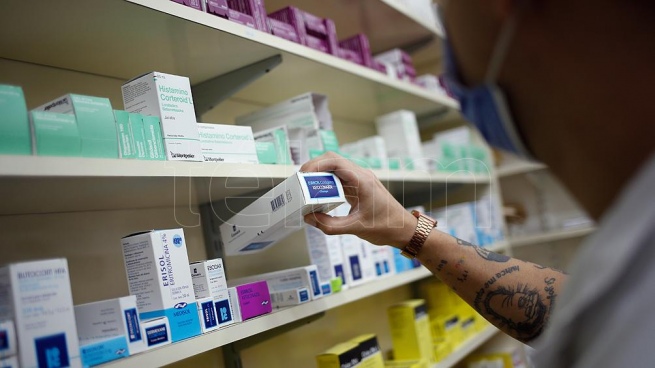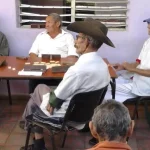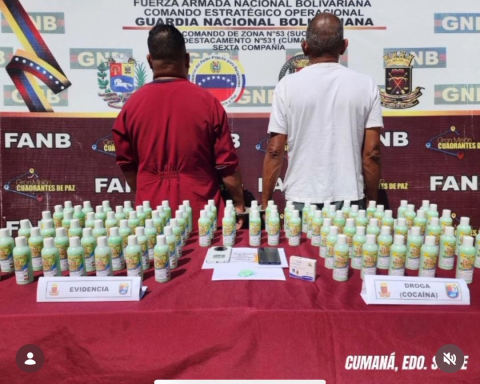The government announced on Tuesday an agreement with the chambers of laboratories and pharmaceutical companies so that during the next 60 days the prices of medicines increase by a maximum of one point below the Consumer Price Index (CPI) of the previous month, while the “Cared Patients” program will be implemented, which provides a 35 percent discount on the values of medicines for the population without social work or prepaid.
This was announced by the Chief of Staff of the Ministry of Health, Sonia Tarragona, and the Secretary of Commerce, Martín Pollera, at a press conference at the Casa Rosada after meeting with President Alberto Fernández and pharmaceutical businessmen.
Officials also presented a “Patient Care” program that offers a “35% discount” on “all prescription drugs to the population with exclusive public coverage” that does not have social security or prepaid insurance.
Based on the agreement signed with the five chambers of laboratories and the federations of pharmacies, the prices of medicines “will not be above inflation, but will remain at least one point below the CPI of the previous month “, Tarragona detailed.

During the next 60 days, all medicines sold through pharmacies, both prescription and over-the-counter, will have a maximum increase of up to 1 point below the general Consumer Price Index (CPI) of the previous month.
Fernández was accompanied at the meeting, held this afternoon in the Eva Perón Hall of Government House, by the Ministers of Economy, Silvina Batakis, and Health, Carla Vizzotti; by Pollera and Tarragona and by the Undersecretary of Medicines and Strategic Information, Natalia Grinblat.
For the pharmaceutical sector, Carlos Escobar Herrán, executive director of the Argentine Chamber of Medicinal Specialties; Eduardo Macchiavello, president of the Industrial Chamber of Argentine Pharmaceutical Laboratories; Marcelo Burstein, president of the Business Chamber of Pharmaceutical Laboratories, and Luciano Tombazzi, vice president of the Argentine Chamber of Producers of Generic Medicines and Hospital Use.

So did Jimena Worcel, medical director of the Argentine Chamber of Producers of Free Sale Medicinal Specialties; Damián Sudano, president of the Pharmaceutical Federation; María Isabel Reinoso, president of the Argentine Pharmaceutical Confederation, and Sandra Prieto, treasurer of the Argentine Federation of Pharmacy Chambers.
After the meeting, the President affirmed in a statement that “the issue of medicines addresses the needs of the people” and stressed the importance of “facing the problem together: meeting, agreeing and complying.”
In addition, the president stated: “It is in difficult times that we can prove ourselves as a community that we are, prove ourselves in our solidarity, in our social commitment, in our vocation to win without hurting the other. Maybe it is an opportunity”.
In addition, those people who do not have social insurance will have 35% discounts on all their duly prescribed medications, to facilitate access to their medication.
Health is a right and in this way we are guaranteeing it. #PeopleFirst ?? pic.twitter.com/KI9avtAF91
– Alberto Fernández (@alferdez) July 19, 2022
For his part, Vizzotti valued “the work that has been done in conjunction with the pharmaceutical industry”and stressed that “it is very important to favor the population’s access to medicines the agreement with the national and international pharmaceutical industry and all pharmacy areas that are very important links and are sitting at this table.”
Meanwhile, Batakis explained that “the world is experiencing a singular episode”and highlighted the importance of “building that path of trust, work and anticipation of problems”.
“It seems to me that this is what will bring us the best solutions, so that we can be on this path, which is what we are agreeing on today (for this Tuesday),” he added.
Tarragona referred at the press conference that “this is the third agreement of this Government” with the pharmaceutical chambers, after those held in December 2019 and last October, “and in none of the previous cases” did they have to file claims for non-compliance.
Regarding the products brought from abroad, the official indicated that they are working “together with the Ministry of Economy and the Central Bank with laboratories and suppliers of inputs to work one by one on import problems“.
In the same call to the press, Pollera also stated that the Secretary of Domestic Trade and the Ministry of Health “are going to monitor compliance with this agreement, which begins to take effect from now on.”
“Last week we summoned each one of the actors and raised our concerns about drug prices,” said Pollera.
“We were able to find a space for dialogue, and from that the two measures were agreed upon,” he added.

The Secretary of Internal Commerce clarified that “the agreement is voluntary” and reinforced that the idea is that “the trajectory (of prices) goes below inflation.”
Pollera pointed out that “the Secretary of Commerce and the Ministry of Health are going to monitor the agreement” and after describing the agreement as “very good,” he assured that it will “be fulfilled from day one.”
He explained that “heThe baseline to measure the price increase is from June 30, and the rise in medicines over inflation will be compensated the following month”.
Meanwhile, Macchiavello pointed out that the objective is that “medicines reach the entire population” and recalled “it is a very big effort by the Government and the industry” to assist “those who do not have coverage.”
The businessman recalled that medicines “were not lacking during the pandemic” because “there is an Argentine industry and a multinational based here.”
“The Central Bank guarantees us to be able to pay the active principles and imported inputs”pointed out the businessman, and formulated: “China was closed. Many active ingredients are from China and India, freight has become very expensive, supply has been delayed. It may be that there are shortages but not because the Central Bank does not give the dollars , but because the input or the freight to bring it is not obtained, but they are specific cases”.
Reinoso stated that “pharmacies are not price setters, because it is uniform from Ushuaia to La Quiaca”, he considered the importance of adhering to the Patient Care program because they have “a careful look at the population that does not have social security coverage and which is a very important band” and pointed out that “it will be applied in most of the pharmacies that adhere”.
Regarding the supplies, he considered: “We have occasional shortages of active ingredients or supplies,” but he assured that “a patient is not treated, because there are 10 or 15 brands to comply with the treatments”.


















